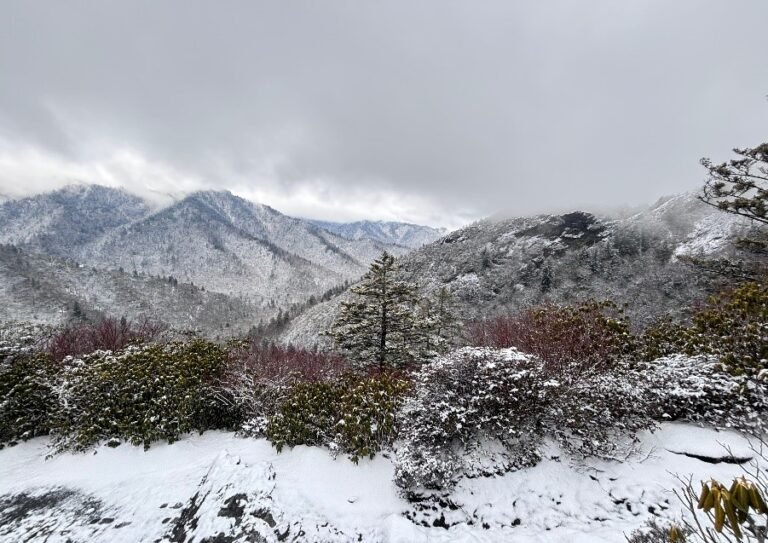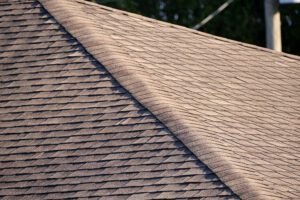In our hyperconnected world, where notifications ping constantly and work emails follow us home, the concept of wellness has evolved beyond green smoothies and meditation apps. True restoration often requires something more fundamental: disconnection from our daily routines and reconnection with the natural world.
Travel, particularly to wild and protected landscapes, offers a unique form of therapy that addresses both physical and mental health in ways that urban wellness trends simply cannot replicate. The act of stepping into nature—breathing cleaner air, moving our bodies through varied terrain, and allowing our minds to wander without digital interruption—provides healing that feels almost primordial.
Places like the Great Smoky Mountains remind us that some of the best medicine doesn’t come in a bottle; it comes from ancient forests, rushing streams, and the simple act of being present in landscapes that have existed long before our modern anxieties.
The Therapeutic Power of Scenic Drives Through Nature
Before you even lace up your hiking boots, the journey itself can begin your wellness transformation. Taking a leisurely drive through natural landscapes offers immediate mental health benefits, allowing you to transition from the chaos of everyday life into a more contemplative state.
Just outside Gatlinburg, the Roaring Fork Nature Trail presents an ideal opportunity for this kind of restorative experience—a narrow, winding motor nature trail where you can roll down your windows and let the sounds and scents of the forest wash over you. As you navigate the one-way loop, passing historic buildings and crossing mountain streams, your nervous system begins to shift from sympathetic (fight-or-flight) to parasympathetic (rest-and-digest) activation. The very act of slowing down, both literally and metaphorically, signals to your body that it’s safe to relax.
Extending your wellness journey means choosing accommodations that support your restoration goals rather than interrupting them. The Inn on the River offers an ideal base for outdoor enthusiasts, with its convenient location on the Pigeon Forge Parkway providing easy access to mountain trails while offering amenities that enhance recovery after days spent exploring nature.
The indoor and outdoor pools allow you to continue gentle movement and hydrotherapy—both excellent for sore muscles and stress relief—while the free hot breakfast bar ensures you’re properly fueled for adventure. The complimentary tickets to SkyLand Ranch and Country Tonite Theater add cultural enrichment to your nature-focused wellness retreat.
Forest Bathing: More Than Just a Walk in the Woods
The Japanese practice of shinrin-yoku, or forest bathing, has gained scientific credibility in recent years, and for good reason. Research shows that spending time among trees can lower cortisol levels, reduce blood pressure, and boost immune system function.
The phytoncides—airborne chemicals released by trees—have measurable positive effects on human health, including increased natural killer cell activity that helps fight disease. When you immerse yourself in forest environments, you’re not just enjoying pretty scenery; you’re receiving a dose of natural medicine that has evolved alongside humanity for millennia.
The key is mindfulness: walking slowly, breathing deeply, and engaging all five senses rather than rushing to reach a destination.
Physical Restoration Through Gentle Adventure
Outdoor travel doesn’t require extreme athleticism to deliver wellness benefits. In fact, moderate activity sustained over time often proves more restorative than intense, goal-oriented exercise. Hiking gentle trails, wading in cool mountain streams, or simply walking along forest paths engages muscles that remain dormant during our typical sedentary days.
This varied terrain challenges our balance and proprioception in ways that flat gym floors never will, strengthening stabilizer muscles and improving overall coordination. The uneven surfaces, elevation changes, and natural obstacles create what researchers call “environmental enrichment”—the kind of physical complexity our bodies were designed to navigate.
Mental Clarity and the Default Mode Network
Neuroscience offers compelling explanations for why travel to natural settings feels so mentally restorative. When we step away from goal-directed tasks and allow our minds to wander in nature. We activate what’s called the default mode network—a collection of brain regions associated with self-reflection, creativity, and emotional processing.
This is the mental state where breakthrough ideas emerge and where we process complex emotions that get buried during busy daily routines. Nature provides what psychologists call “soft fascination”—stimuli interesting enough to hold attention but not so demanding that they prevent reflection.
A butterfly’s movement, leaves rustling, water flowing over rocks—these gentle focal points allow the prefrontal cortex to rest while other neural networks engage in important background processing.
Social Connection and Shared Experience
While solitary nature time has its place, traveling to outdoor destinations with loved ones creates another dimension of wellness: strengthened social bonds. Shared experiences in novel environments or sitting in companionable silence build resilience and create lasting memories that buffer against future stress.
Without the distractions of screens and schedules, conversations deepen and connections strengthen. For many, these deeper conversations also lead to meaningful realizations about well-being and can even encourage individuals to seek help through appropriate channels, including mental health referrals when needed. For families, outdoor travel offers rare opportunities for intergenerational bonding where both children and adults return to a more fundamental way of being together.
Breaking Patterns and Cognitive Flexibility
One often overlooked wellness benefit of travel is how it disrupts our habitual patterns. We sleep in different beds, eat at different times, and navigate unfamiliar territories—all of which build cognitive flexibility and resilience.
This controlled novelty stimulates neuroplasticity, keeping our brains adaptable and engaged. When we return home, we often see our regular environments with fresh eyes, noticing opportunities for positive change that had become invisible through routine.
Practical Integration: Making Nature Travel a Wellness Practice
The key to travel as wellness is consistency rather than extravagance. Regular nature escapes—even weekend trips or day adventures—compound their benefits over time. Start by identifying natural areas within a few hours of home and commit to monthly visits.
Bring minimal technology, allowing yourself genuine disconnection. Practice slow travel: spend more time in fewer places rather than rushing to see everything.
The ultimate measure of wellness travel isn’t the number of miles hiked or peaks summited—it’s the sense of restoration you carry back into daily life. When nature travel becomes a regular practice rather than a rare escape, you build an ongoing relationship with the wild that sustains you through life’s inevitable challenges, reminding you that peace is always available in the places where trees grow tall and water runs clear.


































